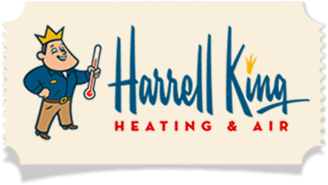If you’ve done your homework on indoor air quality, you may have come across the term “VOC.” This stands for volatile organic compound, a type of compound that emits as a gas off various household products. If you want to keep your home safe and healthy, understanding VOCs and controlling them in your home should be a high priority.
What are volatile organic compounds (VOCs)?
What qualifies as a volatile organic compound is determined by the EPA. The term refers to a wide group of carbon compounds found in many household products that are prone to atmospheric photochemical reactions. Put simply, these are gases that will react with organic compounds in the air, or directly react with the organic compounds of your body. These unintended, uncontrolled reactions can have unpredictable results.
Are VOCs harmful?
VOCs can be very harmful, especially in the high concentrations common inside many homes. Some VOCs can directly cause serious health problems such as liver, nerve, or kidney damage, or increase your risk of cancer.
Others may react with other compounds in the air of your home and become dangerous in other ways. Less serious VOCs can still irritate your eyes, nose, throat, or skin, give you headaches, dizziness, or a sick stomach, and any of these less irritating VOCs can become more dangerous in higher concentrations.
Who is most at risk from VOCs?
Most people aren’t going to have much, if any, problem with short-term exposure to normal concentrations of VOCs, the amount of “intended” exposure you might experience while using a cleaning product, varnish, etc., which off-gases these compounds.
But young children, the elderly, and people with asthma or other health conditions that render them particularly susceptible to chemical irritants should be very cautious about even this level of interaction—and in a home with above-average concentrations, or long-term VOC presence, the threshold for health susceptibility will drop lower.
How can I know if there are VOCs in my home?
First, it’s important to understand that almost every home will have some level of VOC presence, and there are no legal standards for safe levels of VOCs in your home. That said, you can test to see if you have particularly high concentrations, compare against various indoor air quality standards, and establish a comparison point after any removal methods you might implement.
A quick tool for checking is a photoionization detector, which will allow you to get a quick idea of the overall presence of VOCs in the air. However, it can’t identify every VOC, including some important ones to identify, and it can’t tell you what specific VOCs are present.
To get a more thorough understanding of VOCs in your home, you’ll need a professional air sample test completed in a lab.
The difference between cheap consumer detectors and professional grade detectors is immense, so allowing indoor air quality professionals to analyze your home with a combination of high-end sensors and air sample tests may be best.
What can I do to remove VOCs?
The best way to avoid having VOCs build up in your home is to avoid bringing VOC-producing products in to begin with. This can be difficult, however, without an excessive amount of research.
Beyond that, you’ll want to start taking steps to manage your indoor air quality in general. A modern, well-built house doesn’t naturally have air flowing in and out, as this wastes hot or cold air—but this means VOCs linger and concentrate. You’ll need specialized indoor air solutions to neutralize VOCs; even the best HEPA filters can’t catch the gaseous compounds.
Advanced ionizer purifier technology such as that found in the iWave-R that Harrell King Heating & Air installs as part of indoor air quality management can neutralize many VOCs, rendering them inert and harmless, alongside the many other benefits of an ionizer purifier, such as killing mold and other microorganisms.









